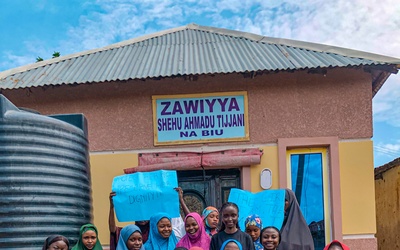Globally, in low-income countries, the average newborn mortality rate is 27 deaths per 1,000 births, the report says. In high-income countries, that rate is 3 deaths per 1,000.
“While we have more than halved the number of deaths among children under the age of five in the last quarter century, we have not made similar progress in ending deaths among children less than one month old,” said Henrietta H. Fore, UNICEF’s Executive Director. “Given that the majority of these deaths are preventable, clearly, we are failing the world’s poorest babies.”
The report notes that 8 of the 10 most dangerous places to be born are in sub-Saharan Africa, where pregnant women are much less likely to receive assistance during delivery due to poverty, conflict and weak institutions. With the newborn mortality rate of 29 deaths per 1,000 births, the global estimates rank Nigeria as the 11th highest on newborn deaths.
In the recent Multiple Indicator Cluster Survey (MICS) conducted by the Government of Nigeria in 2016/17, the rate of newborn deaths per 1000 births is 37. This national average hides the differences between the 36 states and the slow progress in some of them.
“A fair chance in life begins with a strong, healthy start. Unfortunately, many children in Nigeria are still deprived of this,” said Mohamed M Fall, UNICEF Nigeria’s Representative. “MICS data tells us that the trend is improving but urgent action needs to be taken for Nigeria to reach the Sustainable Development Goals. It cannot afford to fail its newborns today.”
More than 80 per cent of newborn deaths are due to prematurity, asphyxia, complications during birth or infections such as pneumonia and sepsis. These deaths can be prevented with access to well-trained midwives during antenatal and postnatal visits as well as delivery at a health facility, along with proven solutions like clean water, disinfectants, breastfeeding within the first hour, skin-to-skin contact, proper cord care, and good nutrition. However, a shortage of well-trained health workers and midwives means that thousands don’t receive the life-saving support they need to survive.
This month, UNICEF is launching Every Child ALIVE, a global campaign to demand and deliver solutions on behalf of the world’s newborns. Through the campaign, UNICEF is issuing an urgent appeal to governments, health care providers, donors, the private sector, families and businesses to keep every child alive by:
- Recruiting, training, retaining and managing sufficient numbers of doctors, nurses and midwives with expertise in maternal and newborn care;
- Guaranteeing clean, functional health facilities equipped with water, soap and electricity, within the reach of every mother and baby;
- Making it a priority to provide every mother and baby with the life-saving drugs and equipment needed for a healthy start in life; and
- Empowering adolescent girls, mothers and families to demand and receive quality care.
######
Download Nigeria-specific photos and broll as well as the full report here
About UNICEF
UNICEF works in some of the world’s toughest places, to reach the world’s most disadvantaged children. Across 190 countries and territories, we work for every child, everywhere, to build a better world for everyone. For more information about UNICEF and its work for children, visit www.unicef.org. Learn about the Every Child ALIVE campaign.
Follow UNICEF on Twitter and Facebook
For more information, please contact:
Eva Hinds, UNICEF Nigeria, +234 9062222216, ehinds@unicef.org








